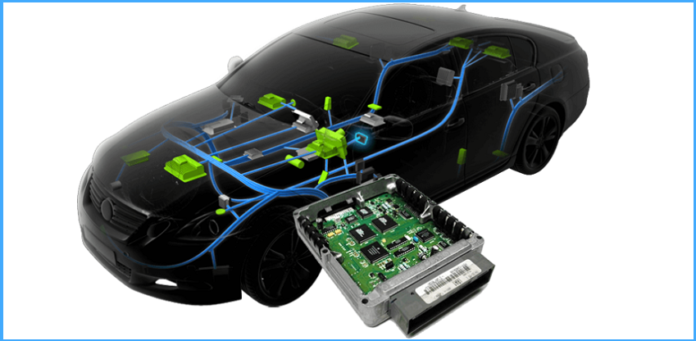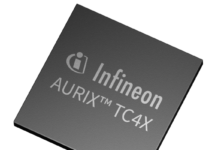
Research Nester published a report titled “Automotive Electronic Control Unit (ECU) Market: Global Demand Analysis & Opportunity Outlook 2033” which delivers detailed overview of the automotive electronic control unitin terms of market segmentation by vehicle type, engines, application, and by region.
Further, for the in-depth analysis, the report encompasses the industry growth indicators, restraints, supply and demand risk, along with detailed discussion on current and future market trends that are associated with the growth of the market.
On the basis of vehicle type, the market is segmented into passenger cars and commercial vehicle. The passenger car segment is expected to grow at a significant CAGR over the forecast period i.e. 2023-2033. The growth of the segment is attributed to rising demand of passenger cars. Furthermore, the global Automotive Electronic Control Unit (ECU) Market is anticipated to grow at a CAGR of 6% over the forecast period.
The global Automotive Electronic Control Unit (ECU) Market growth is anticipated on the account of fueling demand for luxury cars and electric vehicles worldwide, the rising popularity of automated driver assisted systems in the car and government mandates to reduce fuel usage.
On the basis of region, the global Automotive Electronic Control Unit (ECU) Market is segmented into five regions including, North America, Europe, Asia Pacific, Latin America and Middle East & Africa region. Out of all, the market in Asia pacific is to garner highest revenue by the end of 2033. Increasing sales of electric cars and rising popularity of luxury cars is to drive growth of the market in Asia Pacific region.
The research is global in nature and covers detailed analysis on the market in North America (U.S., Canada), Europe (U.K., Germany, France, Italy, Spain, Hungary, Belgium, Netherlands & Luxembourg, NORDIC [Finland, Sweden, Norway, Denmark], Poland, Turkey, Russia, Rest of Europe), Latin America (Brazil, Mexico, Argentina, Rest of Latin America), Asia-Pacific (China, India, Japan, South Korea, Indonesia, Singapore, Malaysia, Australia, New Zealand, Rest of Asia-Pacific), Middle East and Africa (Israel, GCC [Saudi Arabia, UAE, Bahrain, Kuwait, Qatar, Oman], North Africa, South Africa, Rest of Middle East and Africa). In addition, analysis comprising market size, Y-O-Y growth & opportunity analysis, market players’ competitive study, investment opportunities, demand for future outlook etc. has also been covered and displayed in the research report.
Rising Sales of Electric Cars is to Boost the Growth of the Global Automotive Electronic Control Unit (ECU) Market
Alarming need to minimize the emission and utilization of natural fuels is prompting people and government to buy and promote electric cars respectively. Electric cars are in higher demand all across the world. Moreover, manufacturers are heavily investing to enhance its battery power. In 2022, nearly 6 million e-cars were sold worldwide.
However, complexity of electronic control unit followed by technical failures and rising ECU users blocking the communication network are the few factors which are expected to operate as key restraint to the growth of the global Automotive Electronic Control Unit (ECU) Market over the forecast period.
This report also provides the existing competitive scenario of some of the key players of the global Automotive Electronic Control Unit (ECU) Market which includes company profiling of Robert Bosch GmbH, Autoliv Inc., Continental AG, ZF Friedrichshafen AG, Denso Corporation, Delphi Technologies, Panasonic Corporation Co., Ltd., HELLA GmbH & Co. KGaA, Hitachi Astemo Americas, Inc., Hyundai Mobis, and others. The profiling enfolds key information of the companies which encompasses business overview, products and services, key financials and recent news and developments. On the whole, the report depicts detailed overview of the global Automotive Electronic Control Unit (ECU) Market that will help industry consultants, equipment manufacturers, existing players searching for expansion opportunities, new players searching possibilities and other stakeholders to align their market centric strategies according to the ongoing and expected trends in the future.
Source:https://www.researchnester.com/reports/automotive-electronic-control-unit-market/3982


















